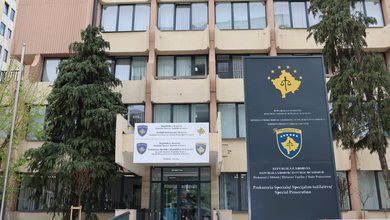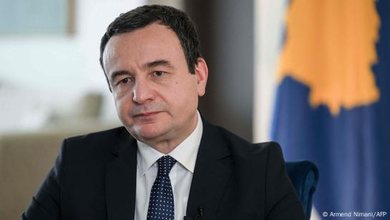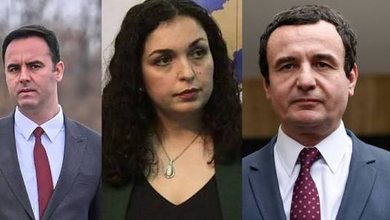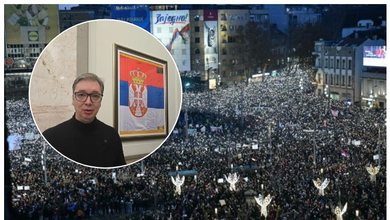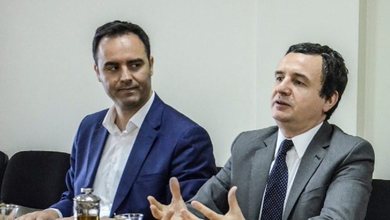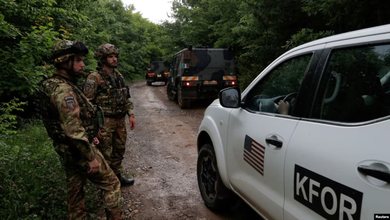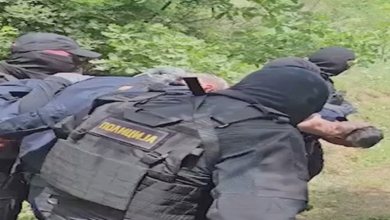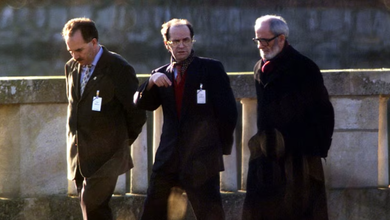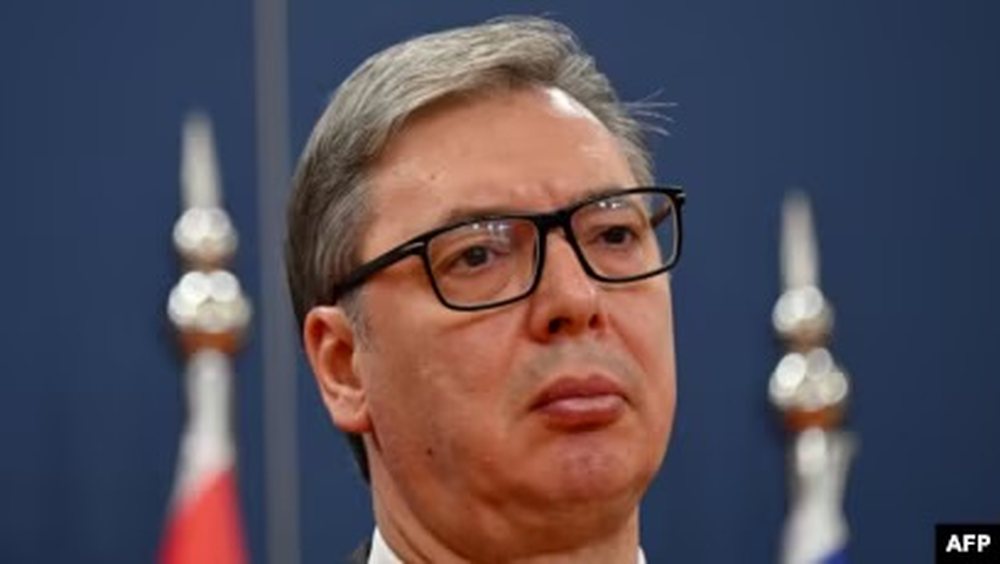
Russia on Friday asked Belgrade for clarification regarding statements by Serbian President Aleksandar Vucic about the possibility of selling ammunition to the European Union, following concerns in Moscow that it could end up in Ukraine.
In a recent interview with the German magazine Cicero, Vucic was quoted as saying that Serbia was ready to sell ammunition to European partners, even if the weapons ended up in Ukraine.
Russian Foreign Ministry spokeswoman Maria Zakharova said at a regular press conference that Serbia has assured Russia several times that its ammunition will not end up in the hands of Ukraine.
"Therefore, Vucic's comments require an official explanation from Belgrade," Zakharova said in Moscow on Friday.
"Let the buyers do whatever they want with the goods," Vučić said in an interview with Cicero on October 30.
On Friday, the State Secretary of the Serbian Ministry of Foreign Affairs, Nevena Jovanović, said that Serbia does not supply weapons and military equipment to parties at war anywhere in the world.
Responding to Moscow, she stressed that Belgrade strictly respects international and United Nations rules and norms.
She added that the Ministry of Foreign Affairs is surprised by Zakharova's comments on this issue.
"We would like to emphasize that Serbia is a sovereign and independent state, which makes decisions only in accordance with its national interests. We expect representatives of friendly countries to respect this fact," Jovanović declared.
She also recalled that Serbia is the only country in Europe outside the Commonwealth of Independent States – an organization that includes several former Soviet states – that has not imposed sanctions on Russia.
"It is worth remembering that our country has not opened any new chapter in the EU accession process since December 2021, even though it could have done so. It is quite significant, and certainly not a coincidence, that this date coincides with the beginning of the war in Ukraine," concluded Jovanović, adding that Serbia will continue to conduct its policy according to its own interests.
The Ukrainian Pravda newspaper, following Vučić's interview with Cicero, reported that ammunition depots in Serbia are full, especially with mortar shells.
"Serbia is ready to offer its friends in Europe everything it has, and this is an extraordinary contribution to European security," Vučić said, according to Cicero.
He added that Serbia is fully prepared to cooperate with the EU on military matters and that it awaits responses from European countries to its proposal.
Following these statements, Dmitry Peskov, spokesman for Russian President Vladimir Putin, also reacted, saying that Russia understands the "extraordinary pressure" being exerted on Serbia and described the issue of Serbian arms exports as "not a simple matter at all."
Russia's Foreign Intelligence Service (SVR) stated in June that Serbian companies have increased indirect arms supplies to Ukraine through EU countries, such as the Czech Republic and Bulgaria.
At the same time, Belgrade announced that it had suspended the export of ammunition, weapons and military equipment produced in Serbia, following criticism from Moscow and during the Israeli-Iranian conflict.
Vučić stated on June 23 that the ammunition, until further notice, would only be distributed to military units within the country and also confirmed that Serbia had sold ammunition to Israel following the Hamas attacks on October 7, 2023.
The Serbian Ministry of Defense and the Ministry of Internal and Foreign Trade did not respond to Radio Free Europe's questions, sent on November 6, about whether any weapons or military equipment have been exported from Serbia since June 23.
Belgrade has repeatedly denied that Serbia directly exports weapons to Ukraine or Russia, and has stated that it cannot influence whether Serbian weapons, after being sold to third countries, end up on the Ukrainian front.
It is not known exactly how much Serbia exports, as the Ministry of Trade reports have not been published for years. The last such report, according to a search of official portals, was published for 2022.
That document states that during the period 2005–2022, the total value of licenses issued for the export of dual-use goods was $77.97 million. (REL)


